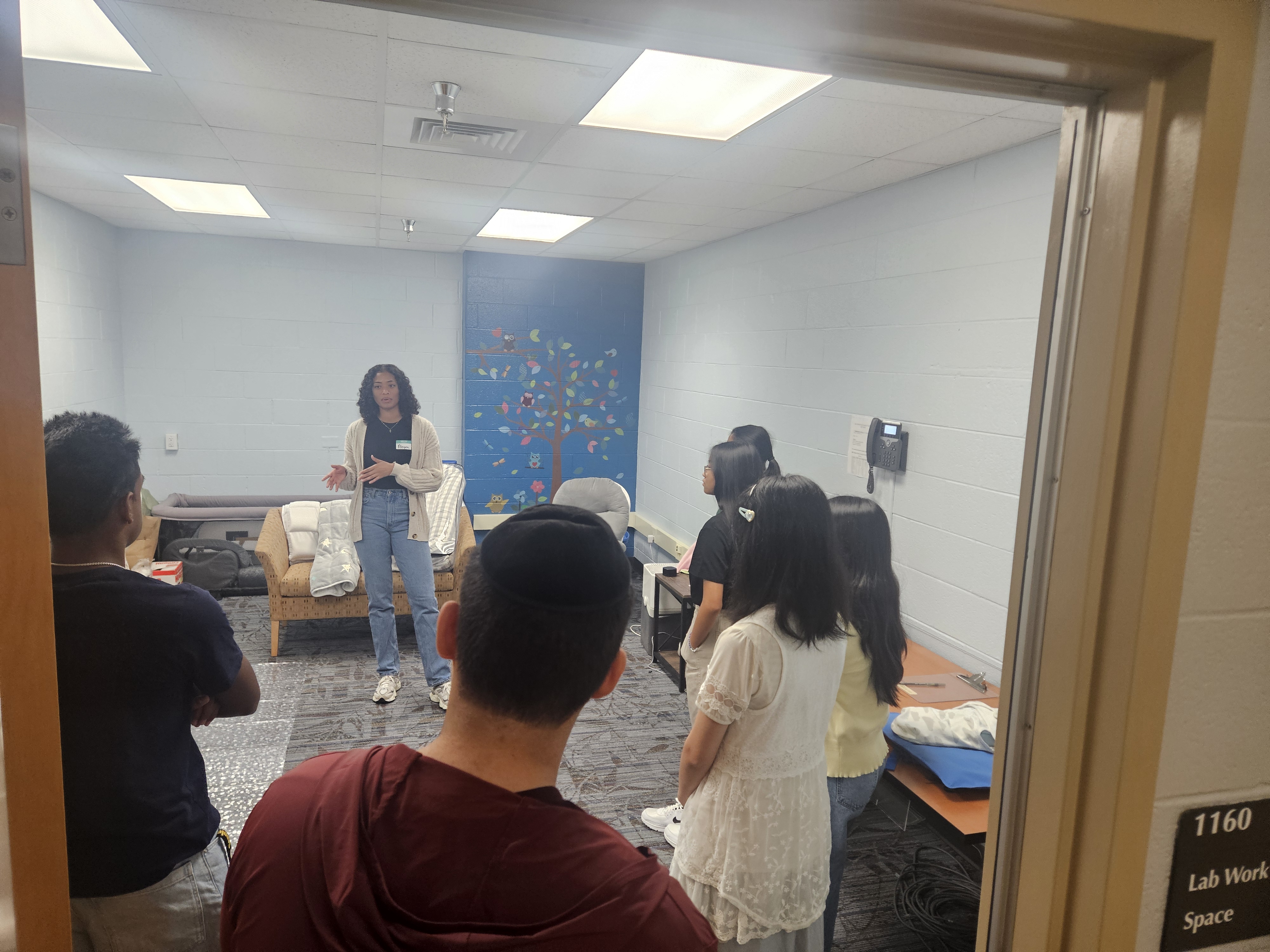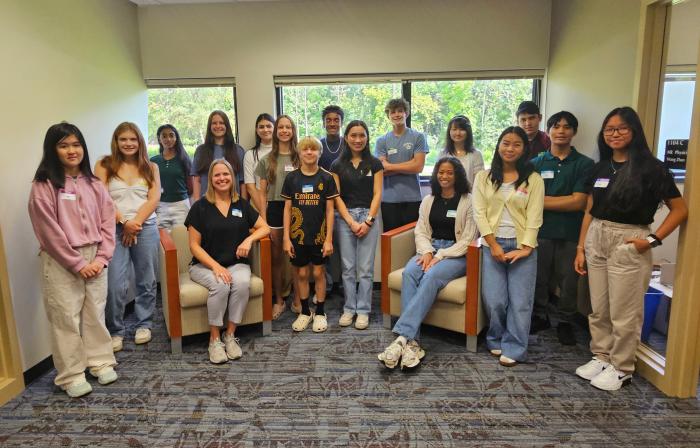Giving High School Students a Glimpse into Neuroscience Research
High school students hailing from Maryland and Virginia schools not too far from the University of Maryland, College Park can now get a behind-the-scenes look at what it’s like to be a neuroscience-focused academic research assistant (RA), thanks to a new program led by Department of Psychology Professor Tracy Riggins.
Called “RA for a Day,” the program gives students an overview of Riggins’ research—memory and brain development in infancy and early childhood—and offers them a tour of the Maryland Neuroimaging Center, where much of Riggins’ research data is collected.
At the Maryland Neuroimaging Center, RA for a Day participants get to see a volunteer child undergo an MRI; learn about the data that is extracted from the MRI; and see how Riggins’ team adapts the MRI scan so that it can comfortably accommodate an infant or young child. They also read and discuss research papers that Riggins’ team has published in Frontiers for Young Minds—an open-access academic journal that publishes “science for kids, edited by kids”—and are encouraged to create their own research proposal.
The RA for a Day program was created in response to interest that Riggins was receiving directly.
“This past year, I had twenty to thirty requests from high school students to intern in my lab; I've had requests before but never this many,” she said. “I didn't like having to tell them all ‘no,’ so we created this program to at least give them some insight into what we do in my research lab. It's not a full internship, but it's a start, and gives students a chance to discover whether or not this field is one they want to pursue without dedicating a whole summer or semester to it.”
Aleyah Perry, a 2024 graduate of the Department of Psychology, is one of Riggins’ research assistants. Perry helps run RA for a Day, and knows firsthand how impactful such programs can be.

“This is a program I would have loved to experience as a high schooler,” Perry said. “Exposure is everything … I began college as an engineering major because engineering was the most familiar to me. However, I graduated with a degree in neuroscience, and I can't help but wonder how different things might have been if I had access to a workshop like this earlier on—something that could've opened my eyes to new passions and possibilities.”
Over lunch, participating students also get a chance to speak to undergraduate and graduate students from Riggins’ Neurocognitive Development Lab about science, their possible careers, college in general, and more.
“This program isn't just a learning tool, it's also a networking tool, so as students begin to think about college applications they can have mentors to reach out to in their field of interest,” Perry continued. “Exposure like this can change trajectories and that's what makes it so powerful.”
As much as the RA for a Day program stands to positively impact students, Riggins is hopeful that it will have a positive impact on the field of neuroscience, too.
“I think involving high schoolers is important for the field as we need a diverse set of voices with different lived experiences to make our research as good as it can be,” she said. “They can help us formulate questions that are relevant to them and the world they will inherit.”
To express interest in participating in the next RA for a Day program, email riggins@umd.edu.
Published on Thu, Aug 14, 2025 - 10:58AM




